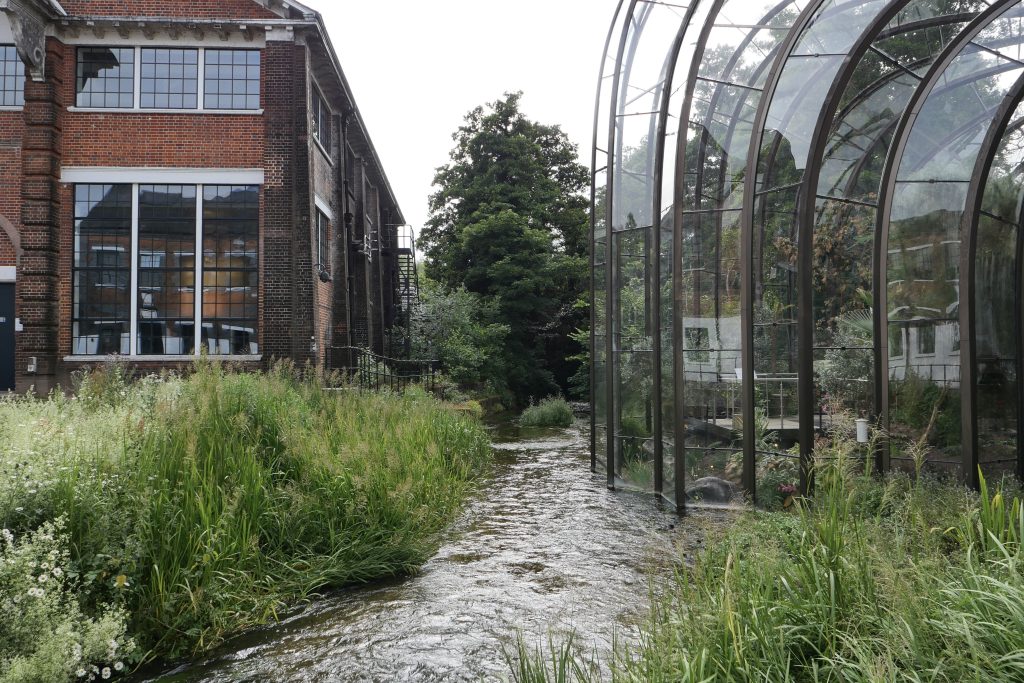Inside Sipsmith’s London Gin Distillery
Mad scientist experimentation blossoms from an international selection of premium botanicals

When setting out to open the first traditional copper pot gin distillery in London in 200 years, Sipsmith founders Sam Galsworthy and Fairfax Hall and historian, author and master distiller Jared Brown quickly learned that their ambitious goal would require sacrifice and perseverance. Blocking their dream was The Gin Act of 1751 that outlawed small distilleries in London to curb crime in the city at the time. Trying to open the first distillery in London since 1820 led to years of petitioning HM Revenue & Credits until the laws finally changed.

Now—in the West London neighborhood of Chiswick—Galsworthy, Hall, and Brown have built a juniper-scented haven. The Sipsmith distillery sits back from rows of charming houses in the quiet residential neighborhood. It’s here that the trio brings their knowledge, enthusiasm, and commitment to making hand-crafted, small-batch gin.

Each gin made here (in world-renowned Christian Carl stills) features 10 classic-style botanicals, and every one has its own unique characteristics which can be tracked by the batch numbers on each bottle. Sipsmith never works with the regimented timing or the automatic cuts that are common in gin production. The juniper, citrus, and spice distilled in traditional copper pots are tested by running fingers across the stream of liquid at various stages of distillation to monitor how the flavors have developed.
The shelves of Brown’s lab are lined with flavor experiments. There, he experiments with a rotovap (rotary evaporator) to assess the flavor attributes of a botanical. In true mad scientist style, Brown has experimented with all kinds of surprising ingredients: one batch led to a “cheese board gin” for which cheese, bread and fruit were layered into the distillation and infusions.

Brown explains that for Sipsmith’s London Dry Gin he works with 10 carefully chosen botanicals, and considers that number to be the sweet spot for enough layers of flavor. “We source juniper, the most essential ingredient in gin, from Macedonia. Angelica is the glue,” explains Brown. “Next up, Orris Root for a violet floral note. This ingredient dates back to Egyptian times and assists with bonding the aromas.” He also adds Bulgarian coriander seed that brings citrus notes on the back of the palate and Spanish licorice root for sweetness. Seville orange peel, Spanish lemon peel, Chinese cassia bark, Spanish almonds, and cinnamon bark from Madagascar have also all been part of the international ingredient list at Sipsmith.

Brown demonstrates the importance of botanicals by placing an experimental sample batch into their small still. This process has been pre-tested by Brown in their lab rotovap to assess what qualities dried Persian limes would offer to gin. He spends his days experimenting and monitoring the stills and their output. At the end of the day, the staff gathers at the bar, where Brown can be seen throwing cocktails with professional finesse.

With their quest to keep production techniques as close to the traditional ways of distillers in the 18th century, the team at Sipsmith measures the temperature of the liquid manually. They check alcohol content with a glass hydrometer. (The hydrometer checks the density of the liquid.) This fragile glass apparatus has become a testing device for trainees, who need to learn to use it without shattering the expensive, delicate tool. They then check a large chart book to gauge how much demineralized water needs to be added by hand.

We watch as Brown mixes a batch of freshly distilled gin with a carefully measured amount of water. He explains how the combination of liquids heats up and changes, and launches into a story about how in times past, one technique for checking alcohol proof was with gunpowder. He waits for the batch to cool before tasting it. “Gin has always been my passion,” he says. “And always will be.”

Sipsmith Distillery tours are available every Monday, Wednesday and Thursdays and select Fridays for £25 and include a tutored tasting of the range.
Hero image courtesy of Sipsmith












